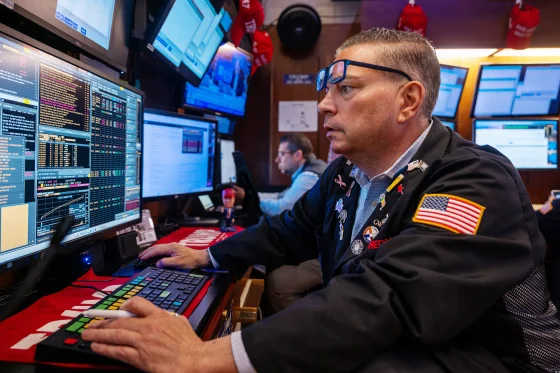News
Unexpected Inflation Triggers Sharp Tech Stock Decline
Technology stocks declined sharply as new inflation data surprised markets, increasing fears of prolonged high interest rates and slower economic activity.

The publication of surprise inflation data that was higher than expected put a lot of pressure on global technology markets to sell. The sudden rise in inflation made investors even more nervous. They now believe that central banks, including the U.S. Federal Reserve, may have to keep interest rates higher for a longer time. This change in expectations has clearly affected sectors that depend on development, including technology, which usually needs lower borrowing costs to keep growing and coming up with new ideas. The stock prices of big IT companies that create software, hardware, AI, cloud computing, and semiconductors fell a lot. High-growth stocks were hit the worst because investors moved away from assets that are perceived to be more sensitive to changes in interest rates. Most of the time, tech companies spend a lot of money on research, development, and long-term projects. But it costs more to keep these projects going when borrowing costs go higher. Stock markets all over the world were affected, and stocks of international IT companies also fell. Because of this, investors moved their money into safer areas including utilities, healthcare, and consumer staples. As people looked for strategies to protect themselves from price volatility caused by inflation, they also became more interested in commodities and government bonds. Things have gotten worse because of problems with the supply chain. The prices of crucial parts like microchips, metals, and electronics have also gone increased, along with the costs of transportation and energy. These price increases are causing many firms to lose money, and they may have to raise prices to cover the costs. This could make people want devices less, which would put even more strain on the IT industry. It doesn't just have an effect on huge businesses. Investors are being more conservative, which makes it difficult for digital startups and businesses with a medium size to receive money. Venture capital firms are being more selective about where they invest their money. Instead of risky growth ideas, they are focusing on firms that already have steady income streams. This implies that plans to hire people, develop new products, and grow are being put on hold or cut back. Even though it may hurt in the short term, several economists think that the present market dip is a necessary step toward more sustainable growth. They believe that companies with strong fundamentals will be able to handle the ups and downs and emerge out of it in a better competitive position when inflation starts to go back to normal. Artificial intelligence, renewable energy technology, cybersecurity, and automation are all expected to be big drivers of innovation and economic growth for a long time to come. People in the market are now paying close attention to upcoming economic data, like statistics on consumer spending, employment, and the policies of the central bank. These items will be highly crucial in the coming several months for figuring out if inflation keeps going up or starts to drop down. Technology stocks are likely to be volatile until there are clearer signals that things are getting better. The tech industry still has a bright future, though. Many industries are going through digital transformation faster, and there is still a lot of need for advanced solutions. The sector is having some issues right now, but its foundations are still robust. This implies that when the economy as a whole gets stronger, it will be possible to recover.
PUBLISHED: November 24, 2025

Jeffrey E. Byrd connects the dots that most people don't even see on the same map. As the founder of Financial-Journal, his reporting focuses on the powerful currents of technology and geopolitics that are quietly reshaping global systems, influence, and power structures.
His work follows the hidden pipelines—where data, defense, finance, and emerging technology intersect. He highlights the players who move behind the curtain: governments, intelligence networks, private security alliances, and digital industries shaping tomorrow's geopolitical terrain.
Jeffrey’s mission is to give readers clarity in a world where complexity is used as strategy.
Read More




